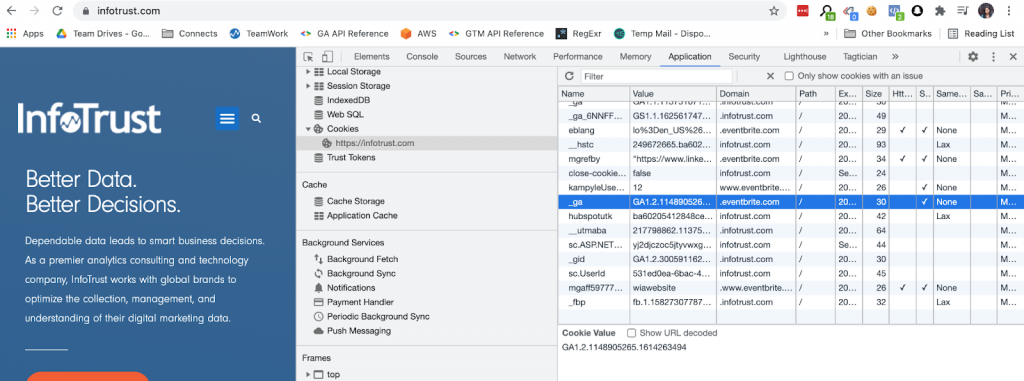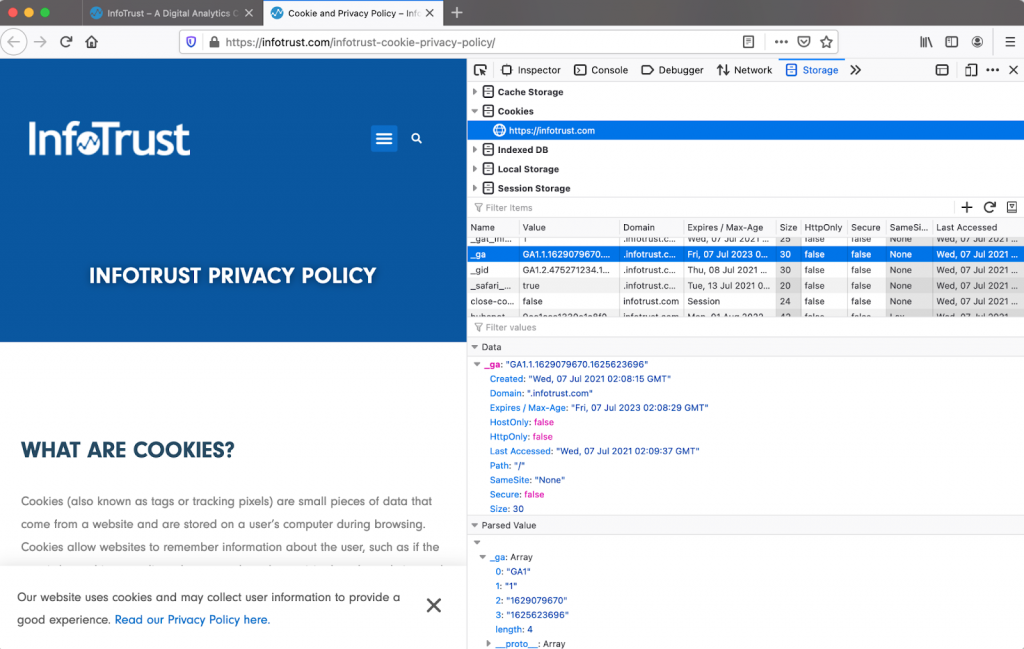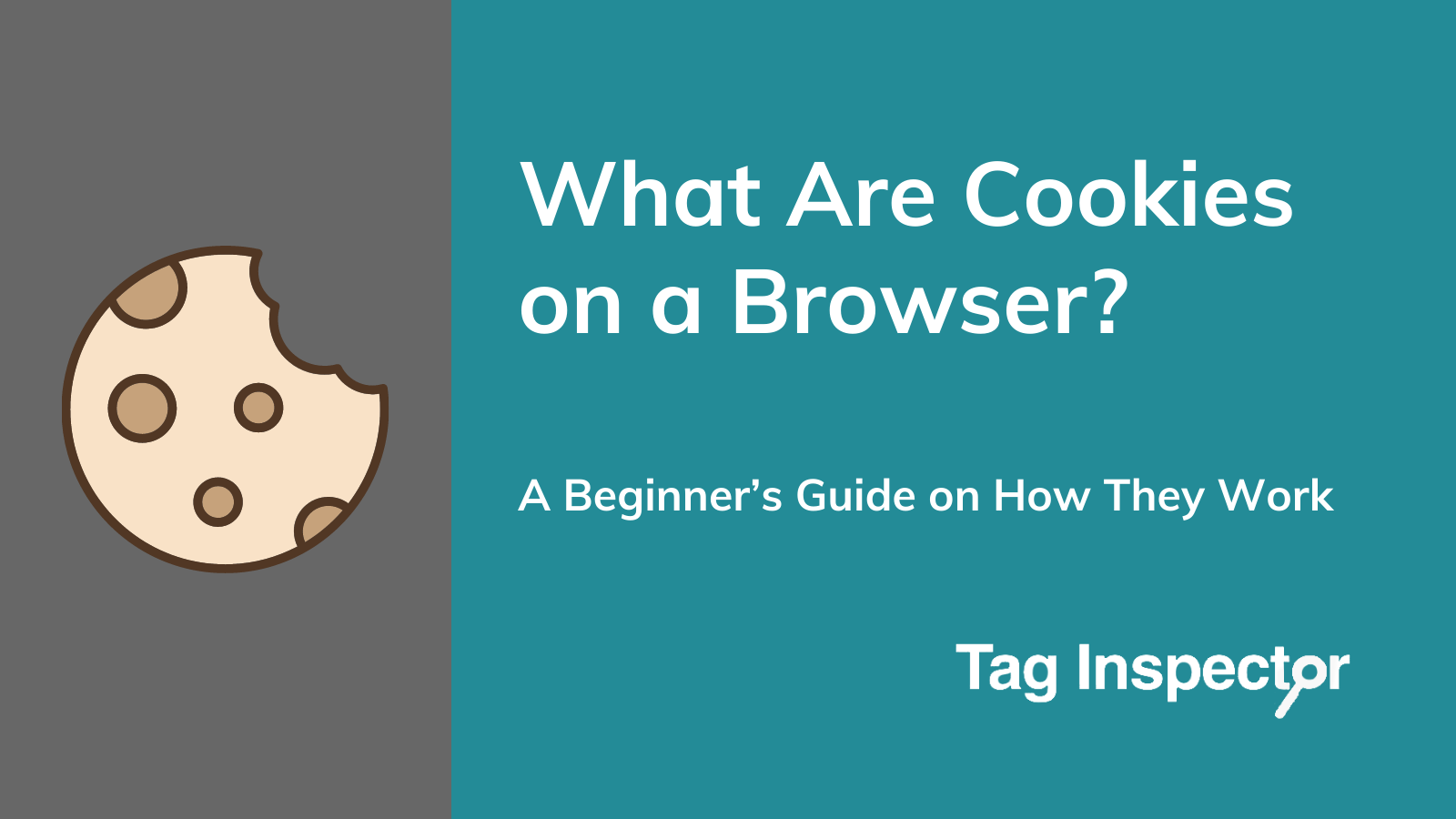Person A: After getting vaccine shot number two, on the way to the exit they had a table of free cookies. I wanted to ask what their cookie policy was. Do you think they were first or third-party?
Person B: I highly doubt they made them themselves so I think that makes them third-party cookies.
Person A: Should we ask if they’ve baked the cookies themselves because I thought third-party cookies are going to go away?
Person B: It’s a tough choice—one does not simply reject all cookies!
You might have heard recently about Google and Apple tightening control of third-party cookies for Chrome and Safari users, making it more difficult for advertisers and companies to use digital advertising tracking. So what does this mean exactly? What do these cookies do?
Let’s explore some common questions people have about cookies.
What are browser cookies and how do they work?
A cookie stores unique information about you each time you open a browser. The website you just visited stores this information and retrieves it again when you visit in the future
Here’s an example: Suppose you go to an online bookstore and order some books. The browser cookies record the information (noting authors, titles, and more). When you revisit a site, your browser will let this bookstore site read that stored information in a cookie.
The bookstore website might use this information to understand your previous purchases and recommend a list of books that have similar authors, topics, and categories. This activity of creating and reading cookies is invisible to users. From your point of view, a list of books that might be of interest just magically appears for you!
What is the difference between a first-party cookie and third-party cookie?
- First-party cookies are stored by the domain (website) you are visiting directly. They allow website owners to collect analytics data, remember language settings, and perform other useful functions that help provide a good user experience.
- Third-party cookies are created by domains other than the one you are visiting directly, hence the name third-party. They are used for cross-site tracking, retargeting, and ad-serving. For example, a cookie set by Facebook when you’re using facebook.com is a first-party cookie. However, if you are on a different website which has a Facebook “Like!” button, that button will access the same cookie but it would be considered a third-party cookie.
Can I see what cookies are there on any website?
Using Chrome, simply open developer tools by right clicking anywhere on the website and select “Inspect”. From the pop-up tool, select the “Application” tab, and voila! There you can see all cookies stored on your end.
You can do this for any website.

If you prefer Firefox Mozilla:
- Open the site you want to see cookies in.
- Open the Storage Inspector by selecting Storage Inspector from the Web Developer submenu in the Firefox Menu Panel (or the Tools menu if you display the menu bar or are on Mac OS X), or by pressing Shift + F9 keyboard shortcut.
- The Toolbox will appear at the bottom of the browser window with the Storage Inspector activated. It’s just called Storage in the Developer Toolbox.
- Select Cookies on the left to see the cookies created by the website.

Can we manage cookies on websites?
Yes, all websites are required by law to give an option to users to enable/disables cookies on their end. There would be a pop-up asking for these options below at the bottom of the site when you visit the website for the very first time.
Alternatively, you can use browser plugins to selectively block some cookies. Here are some examples:
- uBlock
- Ghostery
- AdBlock Plus
- Privacy Badger
- Disconnect (now included in Firefox)
How does tracking work in different locations?
For all Californians, users are forced to accept or reject cookies before navigating anywhere on websites. You can go to the cookie settings link given in the pop-up/banner on the website and select all the options available to you.
However, for users outside California but in the United States, all cookies are enabled by default. You would have to specifically disable cookies from the pop-up settings to opt-out.
How is Safari different from other browsers like Chrome and Firefox?
- Apple has released an ITP (Intelligent Tracking Prevention) feature for its browser Safari.
- This feature is offered with Safari and in iOS 11 by default.
- The way it handles first-party cookies differs from other browsers.
- Its newest version, ITP 2.0, detects cross-site tracking and partitions (or isolates) first-party cookies, making it impossible to use them in a third-party context for tracking or analytics purposes.
- Previous versions of Apple’s ITP (1.0 and 1.1) allowed cookies to be read and used in a “third-party context”, provided the user accessed the domain directly in the first 24 hours. This gave an unfair advantage to Facebook and Google, as the 24-hour purge didn’t have the same effect on them as on other sites because users visit these websites regularly and rarely log out.
